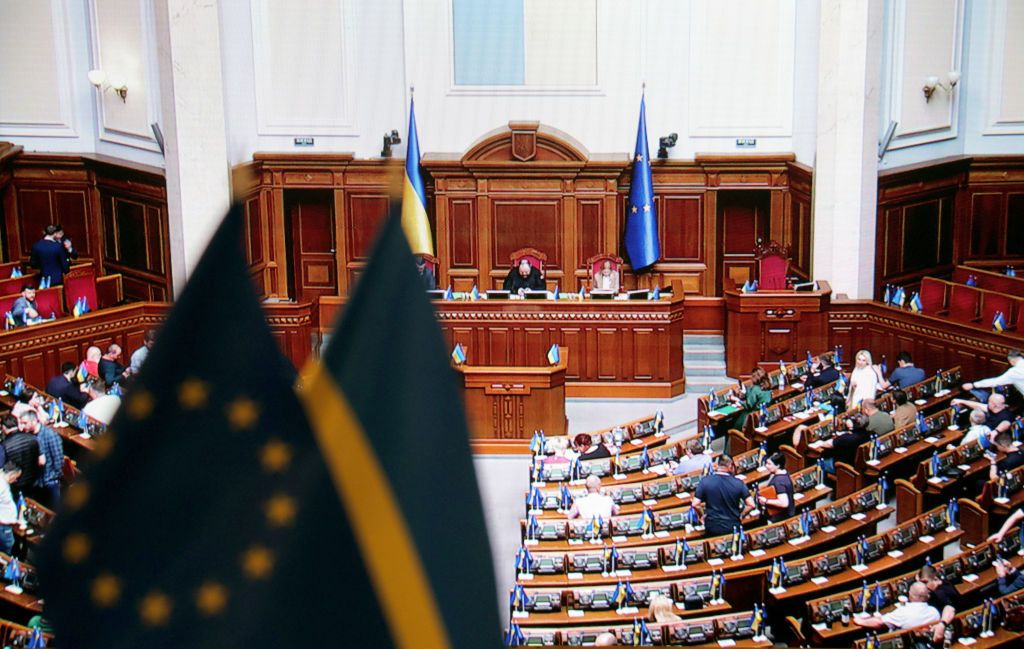Ukraine’s railway crisis threatens EU reconstruction investments

Only to discover they still can’t find available tickets due to the same structural problems that have plagued the system for years.
This shows Ukraine’s broader challenge with state enterprise reform: companies like railway operator UZ excel at customer-facing modernization while struggling with deeper institutional governance. The mismatch between good PR and bad governance shows the limits of surface-level reforms in transforming Soviet-era institutions.
This pattern carries stakes beyond Ukraine’s borders.
Western partners have earmarked billions for Ukrainian infrastructure reconstruction, with the EU alone pledging €50 billion ($58 billion) through 2027. If Ukraine’s largest state enterprises can’t solve fundamental capacity problems while excelling at public relations, it raises questions about whether reconstruction funds will address real inefficiencies or create more impressive-looking dysfunction.
For EU integration, Ukraine must prove its institutions can deliver results, not just better customer experiences.
Modernization meets Soviet-era constraints
Meanwhile, UZ—world’s sixth largest rail passenger transporter and world’s seventh largest freight transporter—has accelerated customer improvements during wartime rather than postponing them. CNN reported last year that the railway operates 55 accessibility-adapted passenger cars, while over 10,000 employees received disability awareness training. In 2023, following social media campaigns, UZ introduced women-only compartments on four main routes.
These changes represent genuine modernization. UZ opened its first merchandise shop in November 2022 at Kyiv’s Central Station, followed by a second at Lviv’s main station in late 2023.
The company also has an online shop selling model trains, traditional tea cup holders, mugs, railway-branded clothing, and travel utensils—moves that signal UZ’s confidence in its public image and commitment to European-style customer service.
Yet passengers still face chronic ticket shortages rooted in government price controls unchanged since 2021.
State-controlled fares create artificial demand that UZ cannot meet with its war-depleted fleet of 500 fewer cars than in 2022. UZ reports losing 150 passenger cars in the past year alone—189 removed from service, with only 39 replacements added—cutting daily passenger capacity by at least 4,500 seats.
The railway projects 22 billion hryvnias ($532 million) in passenger losses this year, depending on state budget allocations for new rolling stock, while simultaneously subsidizing this deficit through increasingly strained cargo operations.
The cross-subsidy trap
The passenger transport crisis reveals UZ’s financial model: cargo transport subsidizes passenger losses, but even freight operations show institutional dysfunction.
While UZ earned 1.13 billion hryvnias ($27 million) profit shipping black metals and 840 million hryvnias ($20 million) from grain exports in 2024, it lost 2.8 billion hryvnias ($68 million) on iron ore, 2.06 billion hryvnias ($50 million) on construction materials, and 1.21 billion hryvnias ($29 million) on coal transport.
This forces UZ to propose a 37% cargo tariff increase that threatens to price Ukrainian exports out of global markets.
Agricultural logistics costs would jump from $18-20 to $25-27 per ton, hitting farmers who compete on world prices they cannot control.
The state railway cannot raise passenger fares due to political constraints and cannot efficiently price cargo due to institutional rigidities, yet it must somehow fund both from a shrinking economic base.
The governance-service gap
These financial pressures compound UZ’s governance problems beyond ticket shortages. In 2022, anti-corruption prosecutors charged three officials with embezzling 103 million hryvnias ($2.5 million) through diesel fuel procurement schemes, manipulating prices to overpay by 10% on 55,000 tons of fuel.
This was followed in 2024 with charges against the former chairman and eight employees for equipment contract fraud.
This pattern reflects a broader challenge across Ukrainian state enterprises.
In March 2024, then-First Deputy Prime Minister Yulia Svyrydenko argued that companies like UZ, the postal service Ukrposhta, and energy transmitter Ukrenergo demonstrate successful reform through supervisory boards and professional management.
That may be the case, but governance reforms remain fragile while customer-facing improvements prove more sustainable. UZ successfully modernizes the passenger experience because those changes require operational adjustments on a lower organizational level rather than systemic institutional transformation.

Wartime performance vs. institutional problems
The railway’s wartime operational record illustrates this tension well. According to company data, UZ transported 25 million long-distance passengers in 2023, including 2 million to EU countries, while handling 14 million tons of freight by November—a 34% increase in freight volume from the same period in 2022. These operational successes occurred alongside governance failures.
UZ’s approach—prioritizing visible customer improvements over trickier changes in structural governance—may reflect wartime pragmatism rather than reform strategy.
Or the avoidance thereof.
Customer-facing changes build public support and international confidence while requiring fewer resources and less time than comprehensive institutional transformation.
Yet this creates sustainable gaps between public perception and institutional reality. Successful branding can mask persistent governance problems, potentially complicating future reform efforts when customer satisfaction remains high despite ongoing structural issues.
In other words, the public and those who have to make these decisions may shrug off the need for any reform by asking: Why change something that works? Even if it doesn’t.
The pendulum problem
Ukraine faces an urgent choice because reconstruction funding is available. The country can continue this hybrid approach—excellent customer service masking structural dysfunction—or tackle the harder institutional reforms that would solve capacity problems.
Western partners evaluating billions in infrastructure investments must know which path Ukraine will choose.
Surface modernization creates good headlines and satisfied international observers.
Still, it won’t solve the underlying problems that make passengers hunt for tickets on existing trains, but it can’t expand capacity to meet demand.
The question isn’t whether UZ can sell more branded merchandise or add more amenities.
It’s whether Ukraine’s institutions can evolve beyond Soviet-era constraints while maintaining their wartime operational success. So far, they’ve proven adept at one but not the other.


